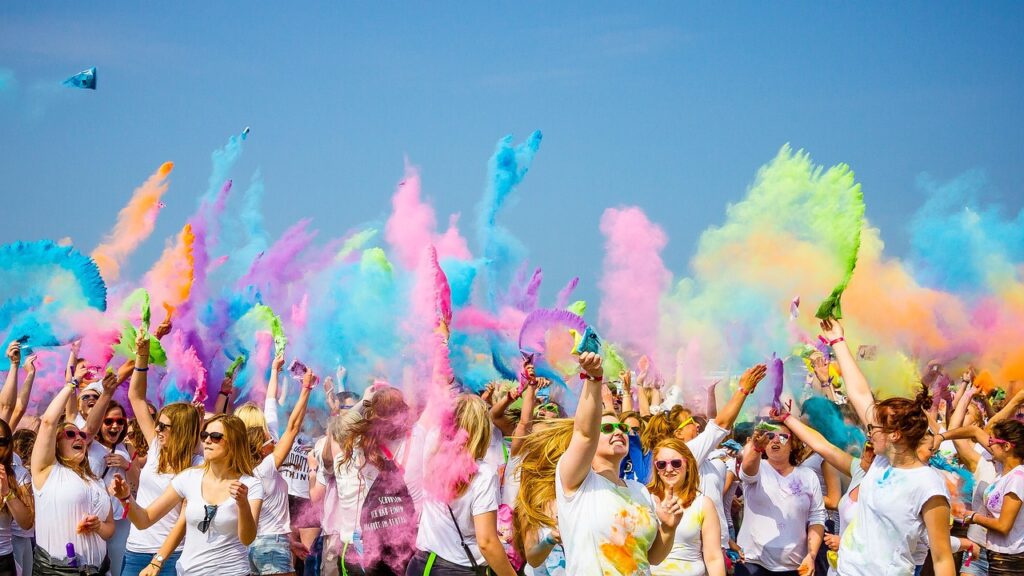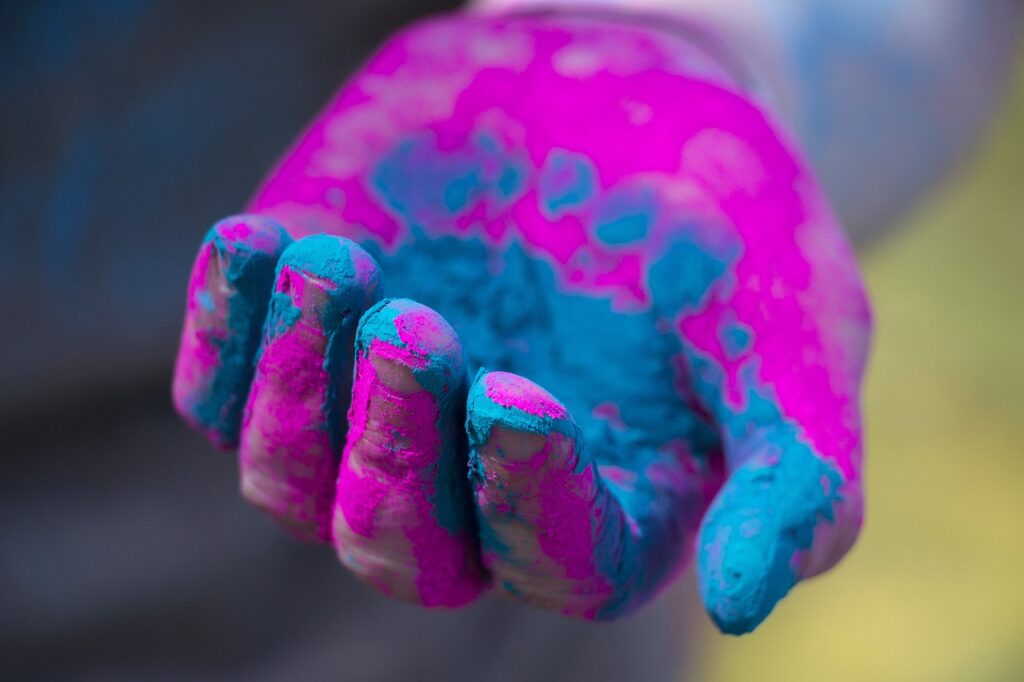
Introduction:
Holi, the festival of colours, holds a significant place in the hearts of millions around the world. Rooted in Hindu scriptures, this vibrant celebration transcends religious and cultural boundaries, uniting people in joyous revelry. As we delve into the depths of Holi, let us explore its rich history, customs, and the profound meanings it carries for those who participate in its festivities.
History and Origins of Holi:
The origins of Holi can be traced back to ancient India, where it was celebrated as a festival marking the arrival of spring and the victory of good over evil. According to Hindu mythology, Holi commemorates the legend of Prahlad and Hiranyakashipu, where the devout Prahlad emerged unscathed from a pyre of fire, symbolizing the triumph of virtue over wickedness. The name “Holi” is believed to be derived from “Holika,” the demoness who perished in the flames while trying to harm Prahlad. Hence, Holi is also known as the Festival of Holika Dahan, signifying the victory of righteousness.
The Joyous Rituals of Holi:
Holi is celebrated with exuberance and merriment, marked by various rituals and traditions that add to its charm and appeal. One of the most iconic customs is the playful throwing of coloured powders and water, symbolizing the arrival of spring and the blossoming of new life. This joyful act, known as “playing Holi,” brings people together regardless of age, gender, or social status, fostering a sense of unity and camaraderie. From vibrant gulal to vivid hues of red, green, blue, and yellow, every colour holds significance, representing the diverse spectrum of life and emotions.
Traditional Foods and Delicacies:
No festival in India is complete without the indulgence in delectable treats and traditional delicacies, and Holi is no exception. From savoury snacks like gujiya, samosas, and pakoras to sweet delights such as malpua, thandai, and rasgullas, the culinary delights of Holi tantalize the taste buds and evoke a sense of nostalgia. Families and communities come together to prepare these mouth-watering dishes, sharing laughter and joy as they bond over food and festivities. The aroma of spices fills the air, adding to the sensory experience of Holi celebrations.
Cultural Significance and Symbolism:
Beyond its surface-level revelry, Holi carries profound cultural significance and symbolism that resonates deeply with its participants. It serves as a reminder of the importance of forgiveness, reconciliation, and the renewal of relationships. The act of applying colours to one another is not merely a playful gesture but a symbolic expression of love, acceptance, and unity. In a world often divided by differences, Holi encourages people to let go of animosities and embrace the spirit of harmony and brotherhood.
Regional Variations and Diverse Celebrations:
While Holi is celebrated across India and beyond, it takes on unique regional variations and customs, adding to its cultural diversity and richness. In the northern state of Uttar Pradesh, the city of Mathura is renowned for its grand Holi procession and raucous festivities, honouring the divine love of Bhagwan Krishna and Radha. Each region imbues Holi with its own distinct flavour and flair, showcasing the kaleidoscopic tapestry of Indian culture.
Modern Interpretations and Contemporary Celebrations:
In recent years, Holi has transcended its traditional boundaries to become a global phenomenon celebrated by people of all backgrounds and cultures. From colourful music festivals and themed parties to community events and cultural exchanges, Holi has found resonance in diverse corners of the world. Its message of inclusivity, joy, and togetherness transcends linguistic and cultural barriers, bringing people together in a shared celebration of life and love.
Conclusion:
As we immerse ourselves in the kaleidoscope of colours and festivities that define Holi, let us embrace the spirit of unity, joy, and renewal that it embodies. Whether we participate in the age-old rituals passed down through generations or join in modern interpretations of this ancient festival, let us cherish the bonds of friendship, family, and community that Holi fosters. In a world often fraught with division and discord, Holi serves as a timeless reminder of the power of love, laughter, and celebration to transcend barriers and unite humanity in a shared tapestry of colours.
Let Holi be not just a festival of colours, but a celebration of the vibrant mosaic of life

